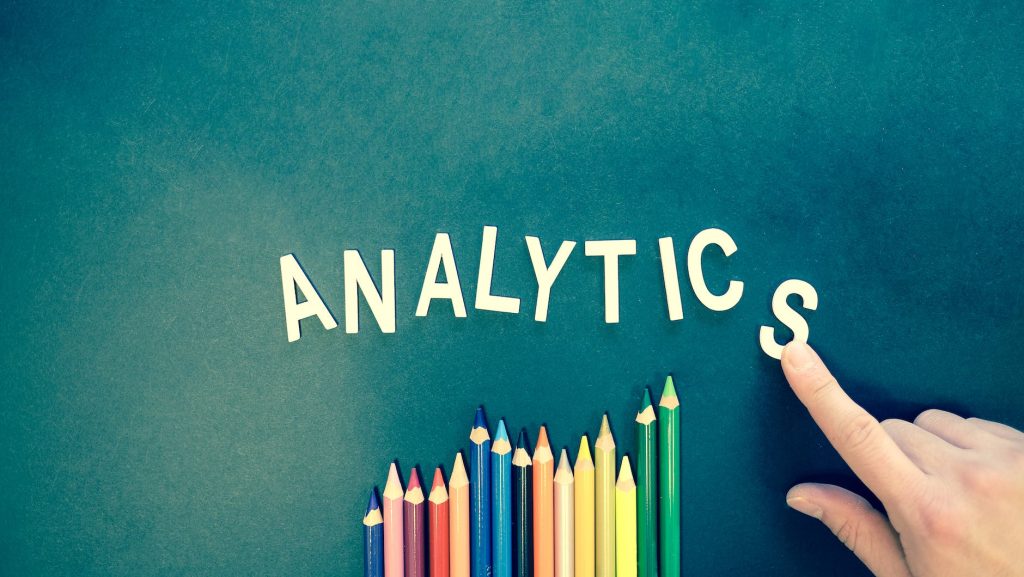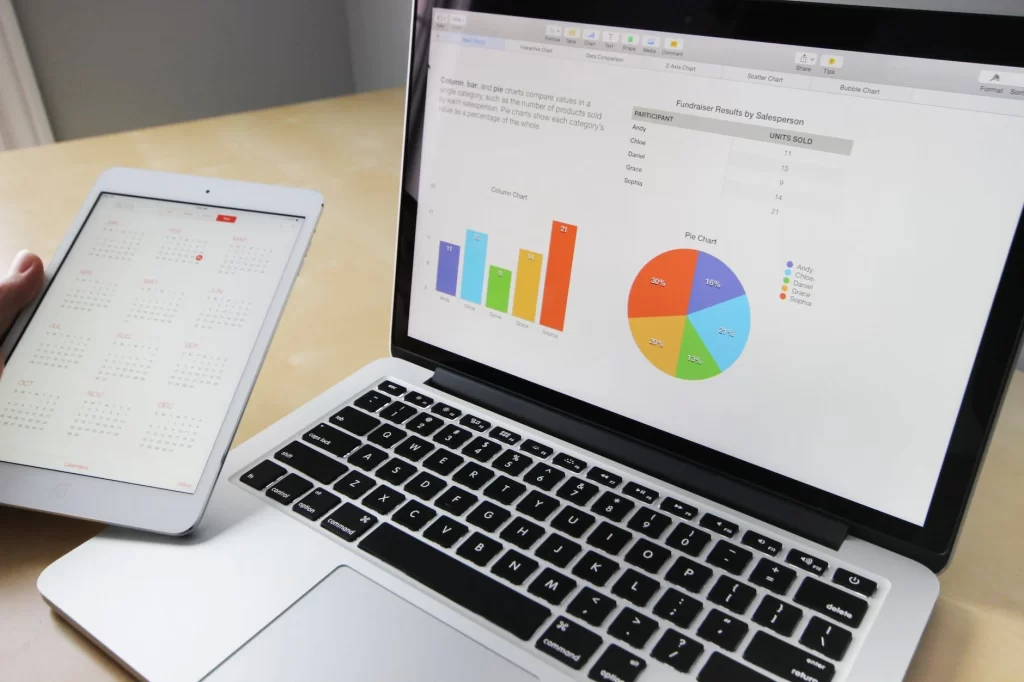Business
Digital Marketing with AI: How it is revolutionizing the industry

(CTN News) – Artificial intelligence (AI) has revolutionised digital marketing, redefining how businesses connect with their target audiences. AI has played a pivotal role in optimising marketing strategies for maximum impact, from personalised content recommendations to predictive analytics.
We will discuss the significance of AI in digital marketing and its profound impact on the industry.
Our session will explore how AI reshapes marketing, offering marketers unparalleled insights and capabilities to engage and convert prospects. As we explore the practical applications of AI in digital marketing, we will demonstrate how it is seamlessly integrated into various aspects of the marketing ecosystem.
A game-changer in driving marketing effectiveness and efficiency, AI can enhance the customer experience, streamline campaign management, or unlock the potential of big data.
Let’s explore the evolving world of AI-driven strategies and their transformative power for businesses worldwide as we uncover the dynamic synergy between AI and digital marketing.
Exploring the Role of AI in Digital Marketing
By providing organisations with sophisticated tools to analyse data, segment clients, and create personalised marketing experiences, artificial intelligence (AI) has transformed the digital marketing environment. The role of artificial intelligence (AI) in digital marketing is defined and discussed in this section.
AI in Digital Marketing: What Is It?
Artificial intelligence (AI) in digital marketing uses smart algorithms and machine learning to automate tasks and extract useful information from customer data. Among these applications of AI are chatbots for customer support, personalised content suggestions, segmentation of customers for advertising purposes, and predictive analysis. With the help of AI, marketers can better analyse client behaviour and adjust their campaigns to suit individual tastes. Beyond simple automation, artificial intelligence (AI) is reshaping digital marketing to be more data-driven and customer-centric.
The Use of AI in Digital Marketing
Improved targeting, a better client experience, and more effective campaign optimisation are just a few advantages digital marketers get when using AI. Artificial intelligence (AI) allows marketers to quickly analyse massive amounts of information, making it possible to see trends and patterns that would be difficult to detect using traditional approaches. Better consumer segmentation results in more relevant information and offers that speak to each person’s unique tastes.
In addition, AI allows for better targeting, maximising return on investment by directing marketing efforts to the most appropriate consumers. Through the use of AI, the customer experience is further improved as it permits real-time interactions, customised suggestions, and simplified communication. Businesses may adapt and survive in a constantly changing market by adopting AI technology and using it in digital marketing.

Marketing Strategies Driven by AI
Artificial intelligence has completely altered the dynamic between brands and their target audiences in the modern age of digital marketing. Companies may improve engagement, analyse consumer behaviour, and provide seamless customer care using AI-powered marketing methods. Let’s get into the main ways AI is changing the marketing game.
Making Tailored Media
AI is essential in developing personalised content by mining data for specific customer insights. Artificial intelligence algorithms may improve the user experience by creating interesting and relevant material based on user choices and actions. The optimal distribution of material across several channels may also be achieved with the help of AI systems; this way, the correct message can reach the appropriate people at the right moment.

Analytics for the Future and Customer Action
With the help of AI’s predictive analytics, marketers can study customer behaviour and anticipate market trends with remarkable precision. Artificial intelligence systems uncover useful information about customer tastes, purchasing habits, and engagement metrics by sifting through massive databases. Businesses are able to improve their marketing strategy, personalise offers, and predict changing market needs with the help of this vital information.
Conversational AI for Customer Support
When it comes to customer service, chatbots powered by artificial intelligence are now essential for offering instant assistance and improving the entire customer experience. These smart virtual assistants communicate with consumers, answer their questions, and fix their problems quickly using machine learning and natural language processing. Chatbots increase client happiness and loyalty by providing round-the-clock service and facilitating frictionless contact.
Businesses can keep up with the ever-changing digital world by using AI-powered marketing tactics. These strategies allow them to provide personalised experiences, predictive insights, and outstanding customer service.
Watch for the following part, discussing how AI is changing targeted advertising.
Robots and Analytics-Based Advertising
Artificial intelligence (AI) is a game-changer in modern digital marketing, allowing more precise and tailored campaigns to be driven by data. Let’s explore how AI helps marketers improve their strategy by turning data into meaningful insights.
Knowledge Gained via Data Analysis
By sifting through mountains of data in search of useful insights, AI gives marketers a leg up. Consumer behaviour, purchasing habits, and interaction trends across several touchpoints may be analysed by AI-driven technologies using sophisticated algorithms. Since this isn’t limited to conventional ways of analysis, it allows marketers to discover important patterns and relationships.
Marketers may use these insights to make proactive choices, optimise campaign performance, and develop data-informed plans. AI data analysis also promotes a more robust and flexible strategy, which helps marketers respond quickly to changing customer tastes and market trends.
Separation and Focus
Artificial intelligence (AI) is essential for audience segmentation according to various characteristics, such as demographics, interests, and behaviour. Marketers may construct specific and detailed audience segments using AI-powered solutions, which allows for more personalised and targeted marketing campaigns.
Artificial intelligence (AI) improves the experience of targeting certain audience segments with relevant information, offers, and promotions using complex machine learning algorithms.
This helps create a smooth and tailored customer experience and makes the most of marketing budgets by targeting certain demographics based on their interests and requirements.

The Rise and Fall of Artificial Intelligence in Online Advertising
Many questions and debates over the future of artificial intelligence (AI) in digital marketing arise from its incorporation.
Privacy and Ethical Considerations
Digital marketers are increasingly using AI, which raises ethical and privacy problems. There are concerns about customer data privacy, transparency, and the need for ethical standards regarding marketing methods that use AI technology.
Customers are becoming more conscious that AI-driven marketing systems acquire, preserve, and use their data. Companies should prioritise customer data access and management and be transparent with their customers at all times. To keep users’ faith in AI-powered ads, finding a happy medium between providing tailored experiences and protecting their privacy is important.
The dynamic nature of digital marketing makes establishing and enforcing ethical norms for AI use more difficult. Ethical concerns must be prioritised to guarantee that marketers communicate with customers responsibly and politely when they use AI to customise content and adverts.
Upcoming Fashions and New Developments
New trends are changing the marketing environment, and artificial intelligence (AI) has great potential for future advancements in digital marketing. Voice search and picture recognition technologies driven by AI are changing how companies connect with customers and help them find goods and services.
With the proliferation of speech-activated gadgets, optimising for voice searches is taking on greater significance. Marketers are looking for new methods to optimise content for voice search to take advantage of AI developments that improve the user experience and boost engagement.
Even more intriguing prospects for immersive and customised marketing experiences arise when AI is combined with other developing technologies like AR and VR. Innovative apps will revolutionise digital marketing in the future thanks to AI’s capacity to analyse massive volumes of data and predict customer behaviour.
AI and other developing technologies have ushered in new marketing paradigms, allowing for more natural, tailored, and personalised interactions between companies and their customers.

In summary
Artificial intelligence (AI) has unquestionably changed the face of digital marketing by making reaching and engaging certain demographics easier and more efficient. With the help of AI, marketers can sift through mountains of data, create unique experiences for each customer, and accurately forecast their actions. Brands can now launch hyper-targeted content campaigns, automate mundane chores to increase productivity, and optimise ad campaigns, all thanks to this game-changing technology. The expansion of AI-powered marketing will surely accompany the further development of AI, providing new chances for companies to use this innovative technology and maintain a competitive edge in the ever-changing online marketplace.
Related Topics:
Business
PepsiCo Reduces Revenue Projections As North American Snacks And Key International Markets Underperform.

(VOR News) – In the third quarter of this year, Pepsi’s net income was $2.93 billion, which is equivalent to $2.13 per share. This was attributed to the company.
This is in stark contrast to net income of $3.09 billion, which is equivalent to $2.24 per share, during the same period in the previous year. The company’s earnings per share were $2.31 when expenses were excluded.
Net sales decreased by 0.6%, totaling $23.32 billion. Organic sales increased by 1.3% during the quarter when the effects of acquisitions, divestitures, and currency changes are excluded.
Pepsi’s beverage sales fell this quarter.
The most recent report indicates that the beverage and food sectors of the organization experienced a 2% decline in volume. Consumers of all income levels are demonstrating a change in their purchasing habits, as indicated by CEOs’ statements from the previous quarter.
Pepsi’s entire volume was adversely affected by the lackluster demand they encountered in North America. An increasing number of Americans are becoming more frugal, reducing the number of snacks they ingest, and reducing the number of times they purchase at convenience stores.
Furthermore, Laguarta observed that the increase in sales was partially attributed to the election that occurred in Mexico during the month of June.
The most significant decrease in volume was experienced by Quaker Foods North America, which was 13%. In December, the company announced its initial recall in response to a potential salmonella infection.
Due to the probability of an illness, the recall was extended in January. Pepsi officially closed a plant that was implicated in the recalls in June, despite the fact that manufacturing had already been halted.
Jamie Caulfield, the Chief Financial Officer of Pepsi and Laguarta, has indicated that the recalls are beginning to have a lessening effect.
Frito-Lay experienced a 1.5% decline in volume in North America. The company has been striving to improve the value it offers to consumers and the accessibility of its snack line, which includes SunChips, Cheetos, and Stacy’s pita chips, in the retail establishments where it is sold.
Despite the fact that the category as a whole has slowed down in comparison to the results of previous years, the level of activity within the division is progressively increasing.
Pepsi executives issued a statement in which they stated that “Salty and savory snacks have underperformed year-to-date after outperforming packaged food categories in previous years.”
Pepsi will spend more on Doritos and Tostitos in the fall and winter before football season.
The company is currently promoting incentive packets for Tostitos and Ruffles, which contain twenty percent more chips than the standard package.
Pepsi is expanding its product line in order to more effectively target individuals who are health-conscious. The business announced its intention to acquire Siete Foods for a total of $1.2 billion approximately one week ago. The restaurant serves Mexican-American cuisine, which is typically modified to meet the dietary needs of a diverse clientele.
The beverage segment of Pepsi in North America experienced a three percent decrease in volume. Despite the fact that the demand for energy drinks, such as Pepsi’s Rockstar, has decreased as a result of consumers visiting convenience stores, the sales of well-known brands such as Gatorade and Pepsi have seen an increase throughout the quarter.
Laguarta expressed his opinion to the analysts during the company’s conference call, asserting, “I am of the opinion that it is a component of the economic cycle that we are currently experiencing, and that it will reverse itself in the future, once consumers feel better.”
Additionally, it has been noted that the food and beverage markets of South Asia, the Middle East, Latin America, and Africa have experienced a decline in sales volume. The company cut its forecast for organic revenue for the entire year on Tuesday due to the business’s second consecutive quarter of lower-than-anticipated sales.
The company’s performance during the quarter was adversely affected by the Quaker Foods North America recalls, the decrease in demand in the United States, and the interruptions that occurred in specific international markets, as per the statements made by Chief Executive Officer Ramon Laguarta.
Pepsi has revised its forecast for organic sales in 2024, shifting from a 4% growth rate to a low single-digit growth rate. The company reiterated its expectation that the core constant currency profitability per share will increase by a minimum of 8% in comparison to the previous year.
The company’s shares declined by less than one percent during premarket trading. The following discrepancies between the company’s report and the projections of Wall Street were identified by LSEG in a survey of analysts:
SOURCE: CNBC
SEE ALSO:
Old National Bank And Infosys Broaden Their Strategic Partnership.
Business
Old National Bank And Infosys Broaden Their Strategic Partnership.

(VOR News) – Old National Bank, a commercial bank with its headquarters in the Midwest, and Infosys, a firm that specializes in information technology, have recently entered into a strategic expansion of their link, which has been in place for the past four years.
This expansion is more likely to take place sooner rather than later, with the likelihood being higher.
For the purpose of making it possible for Old National Bank to make use of the services, solutions, and platforms that are offered by Infosys, the objective of this expansion is to make it possible for the bank to transform its operations and processes through the application of automation and GenAI, as well as to change significant business areas.
This lets the bank leverage Infosys’ services, solutions, and platforms.
Old National Bank Chairman and CEO Jim Ryan said, “At Old National, we are committed to creating exceptional experiences for both our customers and our fellow employees.”
This statement is applicable to Old National Bank. Infosys is carefully managing the business process innovations that it is putting us through, putting a strong emphasis on efficiency and value growth throughout the process to ensure that it is carried out efficiently.
This is a routine occurrence throughout the entire operation. Because of Infosys’ dedication to our development and success, we are incredibly appreciative of the assistance they have provided.
Old National has been receiving assistance from Infosys in the process of updating its digital environment since the year 2020, according to the aforementioned company.
Ever since that time, the company has been providing assistance. The provision of this assistance has been accomplished through the utilization of a model that is not only powerful but also capable of functioning on its own power.
Infosys currently ranks Old National thirty-first out of the top thirty US banks.
This ranking is based on the fact that Old National is the nation’s largest banking corporation.
It is estimated that the total value of the company’s assets is approximately fifty-three billion dollars, while the assets that are currently being managed by the organization are valued at thirty billion dollars.
Dennis Gada, the Executive Vice President and Global Head of Banking and Financial Services, stated that “Old National Bank and Infosys possess a robust cultural and strategic alignment in the development, management, and enhancement of enterprise-scale solutions to transform the bank’s operations and facilitate growth.”
This remark referenced the exceptional cultural and strategic synergy between the two organizations. Dennis Gada is the one who asserted this claim. This was articulated explicitly concerning the exceptional cultural congruence and strategy alignment of the two organizations.
We are pleased to announce that the implementation of Infosys Topaz will substantially expedite the transformation of Old National Bank’s business processes and customer service protocols. We are exceedingly enthusiastic about this matter. We are quite thrilled about this specific component of the scenario.
Medium-sized banks operating regionally will continue to benefit from our substantial expertise in the sector, technology, and operations. This specific market segment of Infosys will persist in benefiting from our extensive experience. This phenomenon will enable this market sector to sustain substantial growth and efficiency benefits.
SOURCE: THBL
SEE ALSO:
American Water, The Largest Water Utility In US, Is Targeted By A Cyberattack
States Sue TikTok, Claiming Its Platform Is Addictive And Harms The Mental Health Of Children
Qantas Airways Apologizes After R-Rated Film Reportedly Airs On Every Screen During Flight
Business
American Water, The Largest Water Utility In US, Is Targeted By A Cyberattack

The largest regulated water and wastewater utility company in the United States stated Monday that it had been the target of a cyberattack, forcing the company to halt invoicing to consumers.
American Water, The Largest Water Utility In US, Is Targeted By A Cyberattack
American Water, based in New Jersey and serving over 14 million people in 14 states and 18 military facilities, said it learned of the unauthorized activity on Thursday and quickly took precautions, including shutting down certain systems. The business does not believe the attack had an impact on its facilities or operations and said employees were working “around the clock” to determine the origin and scale of the attack.

According to their website, American Water operates over 500 water and wastewater systems in around 1,700 communities across California, Georgia, Hawaii, Illinois, Indiana, Iowa, Kentucky, Maryland, Missouri, New Jersey, Pennsylvania, Tennessee, Virginia, and West Virginia.
SOURCE | AP
-

 News3 years ago
News3 years agoLet’s Know About Ultra High Net Worth Individual
-
Entertainment2 years ago
Mabelle Prior: The Voice of Hope, Resilience, and Diversity Inspiring Generations
-

 Health3 years ago
Health3 years agoHow Much Ivermectin Should You Take?
-

 Tech2 years ago
Tech2 years agoTop Forex Brokers of 2023: Reviews and Analysis for Successful Trading
-

 Lifestyles2 years ago
Lifestyles2 years agoAries Soulmate Signs
-

 Movies2 years ago
Movies2 years agoWhat Should I Do If Disney Plus Keeps Logging Me Out of TV?
-

 Health3 years ago
Health3 years agoCan I Buy Ivermectin Without A Prescription in the USA?
-

 Learning2 years ago
Learning2 years agoVirtual Numbers: What Are They For?






